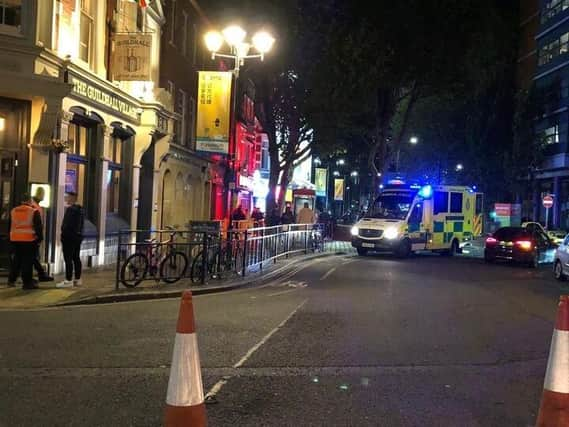Impact on emergency services of extended opening hours for bars and clubs to be examined


Funded by the National Institute for Health Research Public Health programme and led by the University of Stirling, the three-year project will focus on Aberdeen and Glasgow – where, prior to the COVID-19 lockdown, some premises had their licenses extended. The report will aim to understand recent changes in opening hours for bars and nightclubs, and how these changes impact on health, crime levels – and the emergency services in Scotland.
It will be the first study in the UK to look at how opening hours affect ambulance callouts and crimes, alongside an exploration of the impact on public services and business operations. The study will inform future premises licensing decisions, policies and laws in the UK and internationally.
Advertisement
Hide AdAdvertisement
Hide AdProfessor Niamh Fitzgerald, director of the Institute for Social Marketing and Health (ISMH) at the University of Stirling, said: “International evidence suggests that late night alcohol sales are associated with increased rates of assaults, injuries and disorder. In the UK alone, ambulance callouts due to alcohol are estimated at more than 171,000 annually, costing around £52 million.
“Our study aims to understand and assess the impact of later opening hours on harms caused by alcohol, services and costs in Aberdeen and Glasgow, including for specific groups, and the implications for other UK cities if similar changes were introduced. We will also seek to understand local experiences of changes in bar/pub opening hours during the COVID-19 pandemic, and any lasting impact of changes such as curfews and takeaway sales.”
The project, ‘Evaluating later or expanded premises hours for alcohol in the night-time economy’ (ELEPHANT), will build upon previous studies in Norway, Amsterdam and Australia that found that even opening an hour later after midnight led to significantly more assaults or alcohol-related ambulance callouts.
In the UK, councils control opening hours through the licensing system. In Aberdeen, from late 2018, around 30 premises that previously closed at 1am were permitted to close later, some up to 3am. In Glasgow, from May 2019, 10 nightclubs were allowed to change their closing time from 3am to 4am. In both cases, health professionals were unable to call upon robust UK evidence to inform their response to the changes. Premises were granted later hours under specific licensing conditions.
The new study will look at whether and when bars and nightclubs have been using their extra hours – before and during the pandemic - and exploring what happens during any later opening periods – including, who is at the venue, alcohol and drug use, violence, and how the venue operates. It will also use data from the Scottish Ambulance Service and Police Scotland to examine if changes in alcohol-related ambulance callouts and assaults have resulted from later opening hours, and considering whether any changes occur within specific population groups, times of day and locations and evaluate any costs or benefits of the changes, including cost impacts on health and police services as well as businesses.
Professor Fitzgerald added: “The findings will be useful to police and health services, local authority licensing teams and politicians and devolved and national governments, as well as communities and premises owners, in the UK and internationally.”